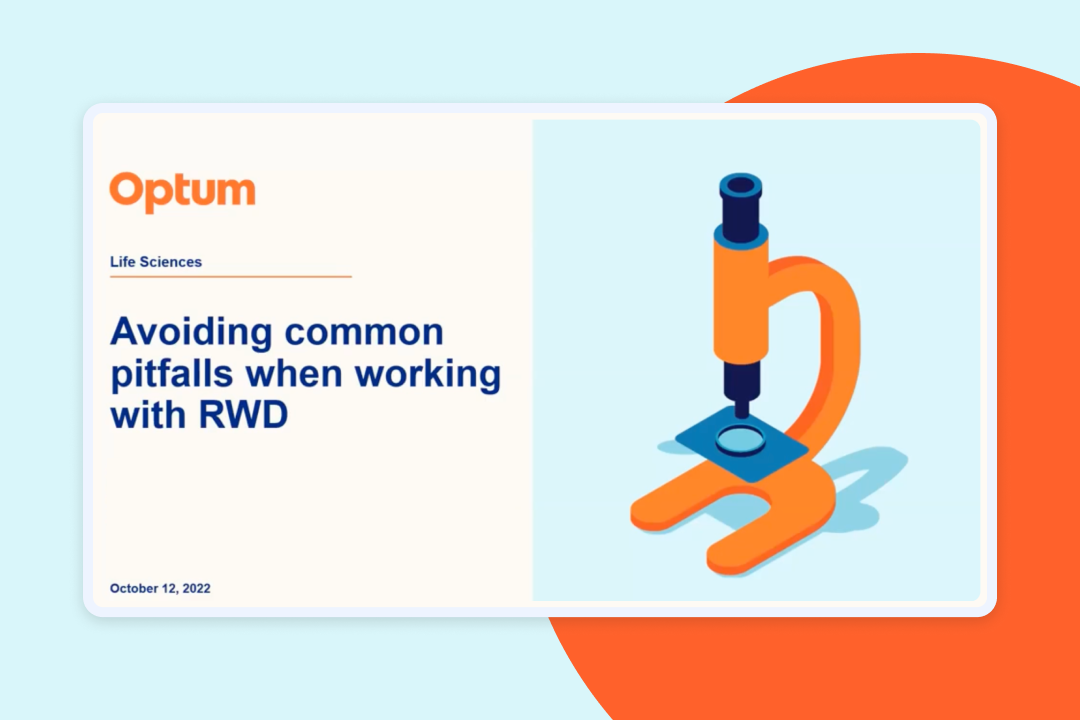Limited understanding of rare and genetic diseases
Rare disease research and treatment development is uniquely challenging given the limited understanding of rare and genetic diseases.
A lack of insight into the natural history of these diseases and their clinical manifestations are a hurdle to effectively addressing them. So, too, are missing efficacy endpoints and the underrepresentation of such diseases in medical coding systems.
Bolster insights with longitudinal data
De-identified, real-world data (RWD) features claims and electronic health record (EHR) data. It also encompasses data from other encounters such as labs, diagnostics and post-surgical care data to present an end-to-end view of patient care.
This robust, longitudinal patient view makes RWD an invaluable tool for stakeholders across the health system. Read how it creates a remarkable opportunity for researchers and product developers in the rare disease space to fill the data divide to power the development of effective treatment options.
Related healthcare insights
Article
Health economics and outcomes research (HEOR) can play a key role in helping the life sciences industry improve patient outcomes.
Article
Small and emerging biopharma companies are already having an impact on the industry. Learn how RWD can enhance the ability to innovate.
On-demand webinar
Optum experts give a snapshot of commonly encountered pitfalls when using RWD and recommendations to help avoid them in this PMSA webinar.



